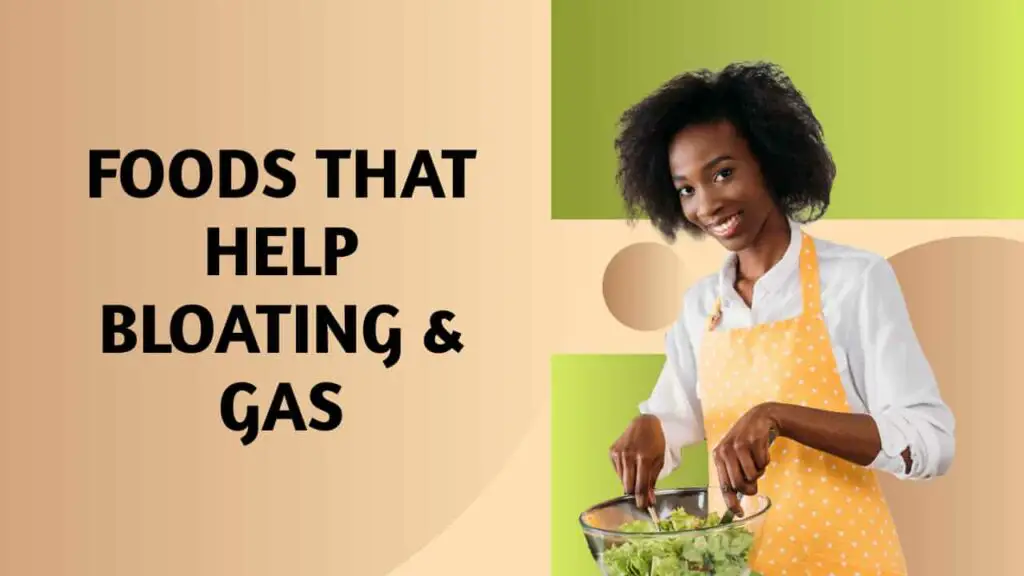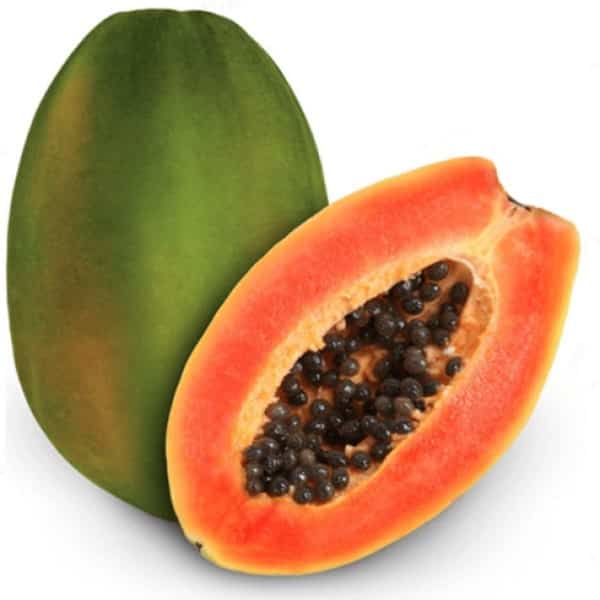In this article, we will discuss 25 of the best foods that help bloating and gas according to nutritionists.
Bloating and gas can be uncomfortable and embarrassing. They are often caused by poor eating habits or digestive problems. Fortunately, there are many foods that can help alleviate these symptoms.
Bloating and gas are common digestive issues that can cause discomfort and embarrassment. While these symptoms can be caused by a variety of factors, such as stress, hormonal changes, or certain medical conditions, diet also plays a significant role. Eating certain foods can help alleviate bloating and gas, while others can exacerbate these symptoms.

-
Save
25 Best Foods That Help Bloating and Gas, According To Nutritionists
Table of Contents
What Causes Bloating and Gas?
Bloating and gas can be caused by a variety of factors. Some of the most common causes include:
- Eating too quickly
- Eating fatty or greasy foods
- Consuming dairy products if you’re lactose intolerant
- Eating foods that are high in fiber
- Swallowing air while eating or drinking
- Drinking carbonated beverages
- Stress and anxiety
- Digestive disorders such as irritable bowel syndrome (IBS) or inflammatory bowel disease (IBD)
Solutions for Bloating and Gas
There are several ways to relieve bloating and gas. Here are some effective solutions:
- Diet Changes: Making dietary changes can help reduce bloating and gas. Avoiding gas-producing foods such as beans, broccoli, cabbage, and onions can help. Also, try eating smaller, more frequent meals instead of large meals.
- Probiotics: Probiotics are good bacteria that can help improve digestion and reduce bloating and gas. Eating foods that are rich in probiotics, such as yogurt, kefir, and kimchi, can be helpful. Taking probiotic supplements can also be beneficial.
- Exercise: Regular exercise can help improve digestion and reduce bloating and gas. Exercise helps stimulate the muscles in the digestive tract, which can help move food through the system more efficiently.
- Hydration: Drinking plenty of water can help prevent constipation and reduce bloating. Aim to drink at least eight glasses of water a day.
- Medications: Over-the-counter medications such as antacids and simethicone can help reduce bloating and gas. Be sure to talk to a healthcare provider before taking any new medication.
Also Read our nice article on Shoulder and Back Exercise.
List of Best Foods that Help Bloating and Gas
- Ginger – Ginger has anti-inflammatory properties that can help reduce inflammation in the digestive tract. It can also help soothe nausea and vomiting.
- Pineapple – Pineapple contains an enzyme called bromelain which can help aid digestion and reduce inflammation in the gut.
- Fennel Seeds – Fennel seeds contain compounds that can help relax the muscles in the digestive tract, which can help alleviate bloating and gas.
- Peppermint Tea – Peppermint tea can help soothe the digestive tract and reduce bloating and gas.

-
Save
- Papaya – Papaya contains an enzyme called papain which can help break down proteins and aid in digestion.
- Lemon Water – Lemon water can help stimulate digestion and reduce bloating.
- Cucumber – Cucumbers are low in calories and high in water content, which can help flush out excess water and reduce bloating.
- Bananas – Bananas are rich in potassium, which can help regulate fluid balance in the body and reduce bloating.
- Yogurt – Yogurt contains probiotics which can help balance the bacteria in the gut and reduce bloating.
- Kefir – Kefir is a fermented dairy product that contains probiotics and can help improve digestion and reduce bloating.
- Sauerkraut – Sauerkraut is a fermented cabbage that contains probiotics and enzymes that can help aid digestion and reduce bloating.
- Kimchi – Kimchi is a Korean fermented vegetable dish that contains probiotics and can help improve digestion and reduce bloating.
- Garlic – Garlic contains compounds that can help stimulate digestion and reduce inflammation in the gut.
- Asparagus – Asparagus is high in fiber and contains compounds that can help reduce inflammation in the gut.
- Green Beans – Green beans are low in FODMAPs (fermentable oligosaccharides, disaccharides, monosaccharides, and polyols) and can help reduce bloating and gas in people with IBS.
- Avocado – Avocado contains healthy fats that can help regulate digestion and reduce bloating.
- Cantaloupe – Cantaloupe is a low FODMAP fruit that is high in water content and can help reduce bloating.
- Watermelon – Watermelon is also a low FODMAP fruit that is high in water content and can help reduce bloating.
- Quinoa – Quinoa is a gluten-free grain that is high in fiber and protein, and can help regulate digestion and reduce bloating.
- Brown Rice – Brown rice is another gluten-free grain that is high in fiber and can help regulate digestion and reduce bloating.
- Sweet Potato – Sweet potatoes are a low FODMAP root vegetable that is high in fiber and can help reduce inflammation in the gut.
- Oatmeal – Oatmeal is high in fiber and can help regulate digestion and reduce bloating.
- Chia Seeds – Chia seeds are high in fiber and can help regulate digestion and reduce bloating.
- Turmeric – Turmeric contains anti-inflammatory compounds that can help reduce inflammation in the gut and reduce bloating.
- Cinnamon – Cinnamon contains compounds that can help improve digestion and reduce inflammation in the gut.
Conclusion
Bloating and gas can be uncomfortable and embarrassing, but there are many foods that can help alleviate these symptoms. Incorporating these 25 foods into your diet can help regulate digestion, reduce inflammation, and alleviate bloating and gas. Remember to also practice good eating habits, such as eating slowly, avoiding greasy or fatty foods, and staying hydrated.
FAQs
These foods can be effective for most people, but it is important to consult with a doctor or nutritionist if you have any underlying digestive issues.
It is recommended to consume these foods in moderation and as part of a balanced diet.
Yes, certain foods can cause bloating and gas in some people, especially if they have underlying digestive issues or food intolerances.
It is best to avoid greasy or fatty foods, carbonated beverages, and foods that are high in FODMAPs if you experience bloating and gas.
It varies from person to person, but incorporating these foods into your diet on a regular basis can help regulate digestion and alleviate bloating and gas over time.
-
Save

